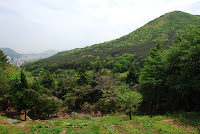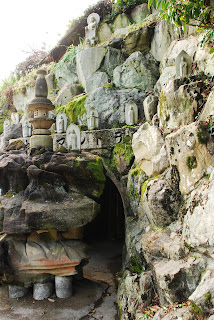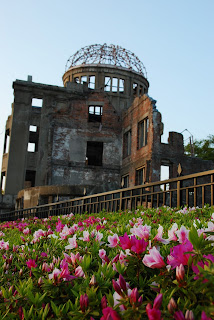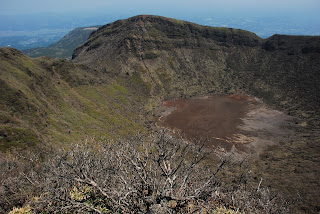It's been a very long time coming, but for the sake of this blog's completeness, and for my own peace of mind, I cannot help but write a little post or two about my time in Korea.
I was in a bit of an odd place mentally by this point - after a full six months of being on the road nonstop, I was beginning to think more and more about what would happen when I got back home: in terms of a job, and a flat, and all those basic things you need to get by in Europe. I was also fast running out of money, limiting my options for exploration. Finally, Korea is not a country that lends itself to effortless exploration outside of cities: I found its tourist infrastructure a lot less Westerner-friendly (or non-Korean-speaker-friendly, rather) than Japan's. And so I found myself dividing my four weeks here between just two cities - Busan on the southern coast, and Seoul.
While the above three factors somewhat limited my keenness to explore and go out of my way to find hidden gems, I still had an excellent time in Korea. This is to no small extent thanks to my friend Dan, whom I first met travelling Israel in summer 2011. He moved to Busan in February to teach English for a year, and very kindly agreed to put me up in his lad pad in Busan's Deokcheon district for a week.
 |
| A man who enjoys his fry-up - pictured here in an "Irish Pub", Korean style. |
Exploring the immediate neighbourhood, Dan and I quickly got hooked on the profusion of fried chicken on offer everywhere in Korea: this is very much a middle-class dish here, while pork (belly in particular) is the "common" meat. Of course, this wouldn't be the Far East if there weren't some absolutely mouth-scorching sauces and marinades on offer; despite many a manly tear being shed we never quite learned our lesson and had it almost daily.
 |
| Deokcheon - lights and cartoon characters as characteristic for Korea. |
A less savoury aspect of Korean cuisine is that of eating dog. While not necessarily a common practice, we still came across some kennels. These dogs were still young enough to be quite cute, and possibly the worst bit was that the cage holding the live dogs was right next to the glass container exhibiting the dead ones - skinned, but with feet and head still attached. At this point, my open-mindedness ended and I decided against pursuing this particular delicacy.
Moving on from food - reluctantly - Busan also boasts the world's biggest department store (yep - beats Macy's and Selfridge's comfortably). I rocked up just before opening time to find a cavernous space filled with atrocious faux-Classical statues dwarfing a little gathering of Koreans already eagerly awaiting the opening of the food hall. Having not seen it from the outside, this is what it looks like.
 |
| The tube terminal at Shinsegae Department Store |
Similar to Japan's onsens, Korean Jimjilbangs are a great place to get clean, soak and relax. That said, Shinsegae's Spaland took things a little over the top for the sake of luxury: we were fairly certain that most of the dozen or so saunas differed in nothing but their lighting concept and background soundscape.
Busan's other high point was a trip to Haeundae beach - one of the benefits of a harbour city!
This was a spectacular opportunity to observe some of the idiosyncracies in Korean culture live. There's not really a better way to show this than with a few examples.
 |
| This guy rode up and down the beachfront, straddling his jetski backwards, for a good two hours. No girls took the bait :( |
 |
| Verging on the creepy, several middle-aged men with large...lenses photographing some teenage girls posing for their friends. |
 |
| Finally, I give you the dubious fashion sense displayed, it seemed, without the slightest hint of irony or fancy dress... |
 |
| ...and the matching couples. Backpacks, shoes, tops...these guys are almost out of line wearing different trousers! |
My remaining days in Busan were spent wandering the city's temples and markets, looking for camera lenses and photo opportunities. The latter were plentiful - although, again, mostly related to food. On the whole, the cheap availability of an incredible variety of street food - ranging from utterly delicious to, well, interesting, was one of my favourite things about Korea.
 |
| Snacks made from pancake-like batter and green onions. |
To round off this little trip down Busan's memory lane, I leave you with a picture of a dog carrying his own essentials.





















































